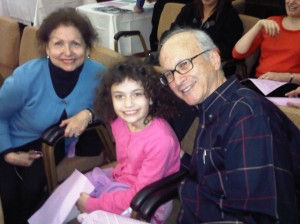I’ll admit it: I’m tired. Today we will be meeting a big deadline at the “day job,” and honestly, that’s my main focus right now.
Which brings up a subject that I saw treated on the Fiction Writers Review blog earlier this week. What the question came down to was this: “Do you consider your day-job writing to be Real Writing? How does it affect your drive to tell your own stories in your fiction?”
Well, now that I’ve had a little more time to think about this, I have a few more (and hopefully clearer) thoughts.
First, for me, these are two discrete questions. At this point, I can divide my “day-job” writing and my “Real Writing” into two categories. But the “Real Writing” would include a lot of writing that isn’t fiction. I’ve written only two new short stories this year. But I have written poems, essays, book reviews, and magazine articles, too. None of that is for my “day job.” All of it is “real” writing.
And sure, the memos, e-mails, and minutes that I work on at the day job may not reflect as much “creativity” as the rest. But I’m a writer who researches whether I’m writing fiction, a freelance article, or a memo. I’m a proofreader all the time. And frankly, I’m often far more deadline-driven at the day job than I am anywhere else. And there’s one big plus to my day job writing: I’m told, repeatedly and frequently, that the work that I’m doing is good. I’m told that it matters. I’m told that my skills are appreciated. Yes, I get some of that feedback as a fiction writer, too. But not nearly so much, and not nearly so often.
The second question–about how my day job may affect my drive “to tell [my] own stories in [m]y fiction”–is more complicated, and it forces me to consider something I don’t especially enjoy thinking about very much. And that’s the fact that since I returned to a full-time, 9-5 office job, my fiction production has declined precipitously. I’m not sure I’ll ever be back where I was in my MFA program, when I was writing literally a dozen stories a year. I’m not sure why that is. I don’t think that it is due entirely to the changes in my schedule and the intense daily demands on my brainpower. But it’s true that most of the time I feel as though I’m thinking in poem or essay form. I’m thinking about something intense, something that can be encapsulated in a few lines, or a few pages. I’m thinking in ideas or emotions, not in images or characters. That’s been excellent for a lot of my outside-the-day-job writing. But it isn’t great for fiction.
So much for clarity, I fear! What do you all think? Please chime in here or on the FWR blog, as you prefer.
